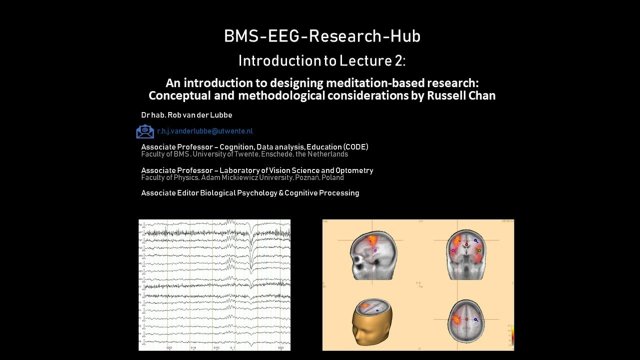Meeting 2: An introduction to designing meditation-based research: Conceptual and methodological considerations
by Russell Chan
date: 1-10-2021
time: 15:00
link: expired
Abstract
The last few decades has seen an exponential increase in meditation-based research using neurophysiology techniques. This popularity has been supported by consistent beneficial effects in stress-related clinical outcomes such as depression and anxiety [1], and is relatively cheap and easy to implement. Recently, there are also more studies that use neurophysiological measures to understand these effects [2]. As researchers, we may be approached by students who wish to conduct experiments on meditation, or asked to review papers on meditation with little understanding of the topic. This introductory talk will cover some of the considerations so as to help you navigate your way around concepts, terminology and methodologies in meditation. It will also be a good opportunity to ask any kinds of questions related to meditation after the session.
References
[1] Goyal, M., et al., Meditation programs for psychological stress and well-being: a systematic review and meta-analysis. JAMA Intern Med, 2014. 174(3): p. 357-68.
[2] Lee, D.J., et al., Review of the Neural Oscillations Underlying Meditation. Front Neurosci, 2018. 12: p. 178.

